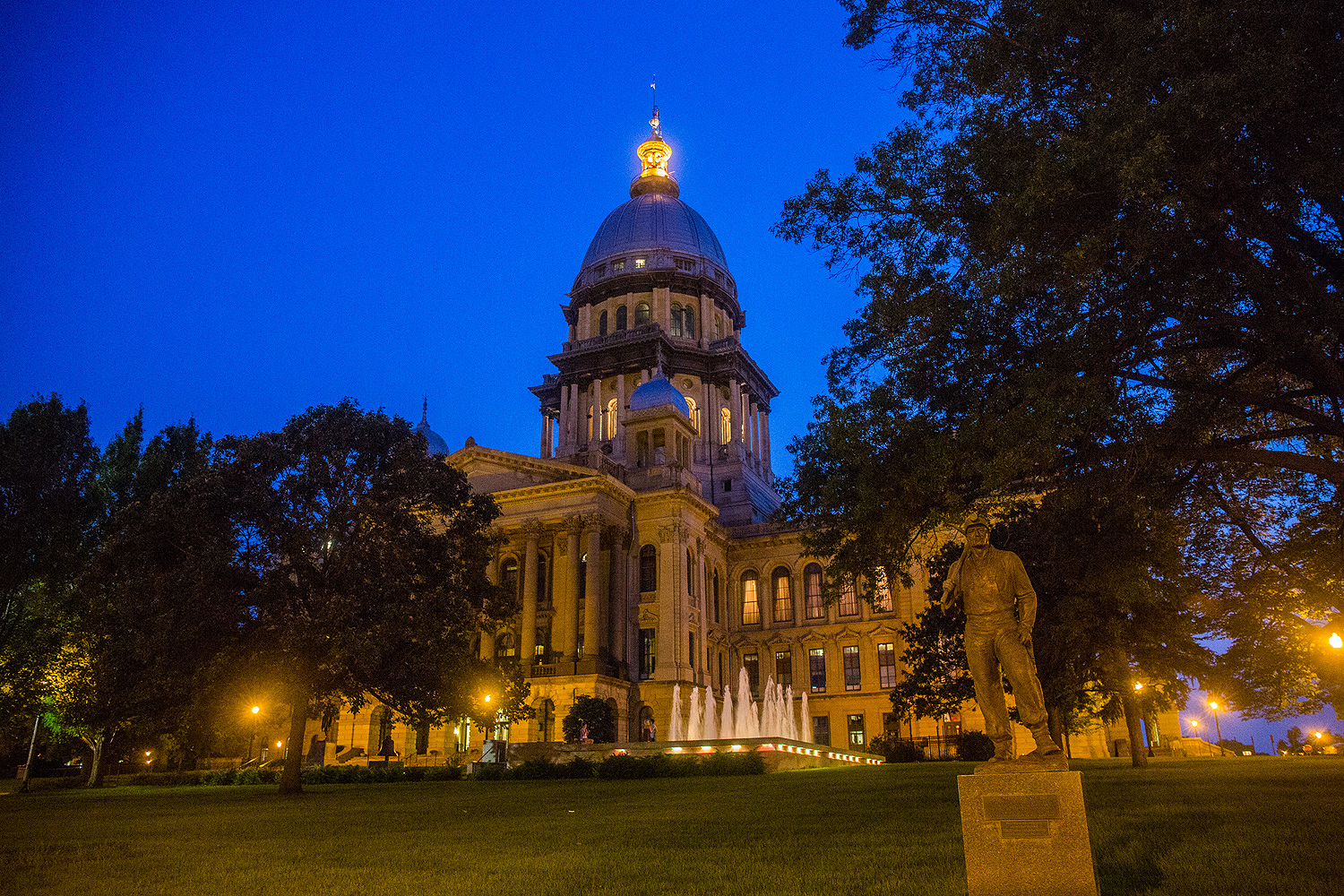I was reading up on Illinois's flat tax this week (here's a good piece by Jamey Dunn about why we have one), when Mike Riopell reported that the effort towards a constitutional amendment to replace it with a graduated tax is done for the year. It's not surprising; the seemingly bipartisan and comparatively trivial push to save a bit of money by eliminating the lieutenant governor's office got stuck in the malfunctioning sausage grinder that's present-day Springfield. Oh well. The graduated tax didn't get much of a hearing, but never let interesting research go to waste! Besides, there's a very good chance we'll be revisiting it.
Take Standard & Poor's. At this point Illinoisians are accustomed to getting lectured by the ratings agency for the state's debt, its structural deficit, and the chaotic environment in which those are not being addressed. So I was interested to stumble across a report from an S&P analyst from late 2014 titled "Income Inequality Weighs on State Tax Revenues," a concept which shouldn't be surprising.
It's interesting because it focuses on something that often gets lost in the discussion about the state's flat tax, which tends to revolve around fairness. Is it fair? On one hand, everyone pays more or less the same income-tax rate, so in that sense, yes. On the other hand, the fact that it's flat means that it doesn't balance out regressive taxes on consumption, so overall the state's tax structure is considered very regressive, as the poor and middle-class pay a much higher percentage of their income in taxes than their wealthier counterparts. Fairness is an important part of taxation, but in and of itself it can be kind of a dead end.
So what works? The S&P report points out that, beginning in the mid-1980s, the weighted average share of income going to the top 10 percent of earners basically doubles; i.e., inequality increases. Meanwhile, tax revenue growth in income-tax-dependent states basically falls by half. There's a similar trend with sales-tax revenue.
"This suggests that through a progressive tax structure, it's possible to counteract much of the depressing effect inequality has on tax revenue growth rates," the analysts write. Plus, since sales-tax revenues went down, it shows "how rising income inequality contributes to slower economic growth."
So since most income-tax states do not have progressive tax structures, "the slower economic growth related to inequality gets transmitted to the sales tax-reliant states' budgets as slower tax-revenue growth," the analysts c
This mirrors what the State Budget Crisis Task Force, chaired by Richard Ravitch and Paul Volcker and prepared with the University of Illinois's Richard Dye, said in 2012: "Because Illinois has a flat rate tax with a personal exemption of only $2,050 per capita, the system has a roughly proportional burden across different income groups. This lack of progressivity in the personal income tax system, combined with the nationwide trend toward rapid growth of income among high-income individuals, has meant that income tax revenue has grown somewhat more slowly in Illinois than in states with a progressive tax system."
When the Herald & Review's Dan Petrella asked the U of I's Dan Fullerton—a former deputy assistant of the Treasury in the Reagan administration—he similarly said that the flat tax is "a little bit of an anachronism."
It's all academic now, and will continue to be as an indecisive state government continues on an austerity budget while adding back funding in a piecemeal fashion, as they learn what is and isn't politically feasible to let wither. But the structural deficit persists even with a doomsday budget, and options for cuts are narrowing. When options for revenue start to narrow down, support for a graduated tax of some kind can be found in some surprising places.



